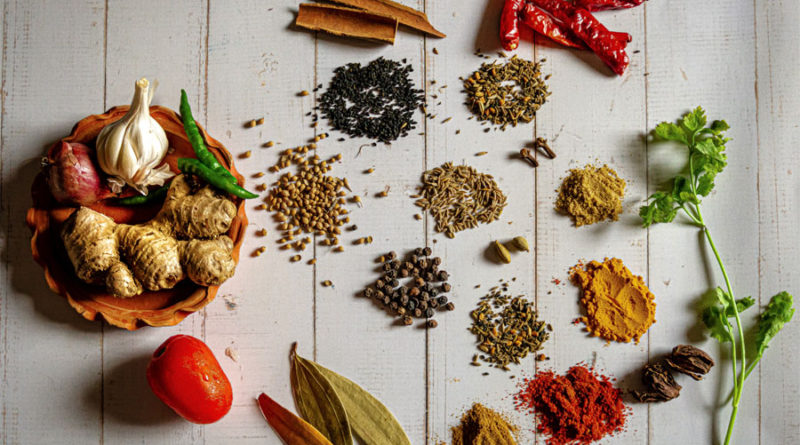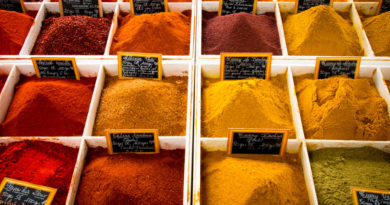Colorful Spices
Besides healthy brain foods, our brain cells can also be protected by certain spices that not only add flavoring and color to our foods, they also bring about potential health benefits that’s derived from their antioxidants and other healthy ingredients. Garlic lowers blood pressure and cholesterol. Ginger, on the other hand can help relieve pain in people with arthritis. Several other spices are known to possess cancer-fighting qualities. Due to their powerful antioxidant attributes, spices can help shield our brain cells from the wear and tear of aging. Pepper, basil, parsley, cinnamon, vanilla, and oregano are just a few of the many potent spices high in antioxidants.
Black pepper has an active antioxidant ingredient known as piperine. Scientists have studied this ingredient and in a recent research effort, it was shown that besides boosting memory performance in experimental mice that carried an Alzheimer’s gene, piperine also slowed down the degeneration of nerves in the hippocampus memory center of their brains within just two weeks.
Indian foods are always filled with spices that contain antioxidants. Curry, cumin seed, turmeric, are almost found in all Indian foods. Curcumin, derived from turmeric is used to make spices such as mustard and curry as well as food coloring and medicines that are used to treat a wide range of illnesses. Thus, it is not surprising to know that India has one of the lowest cases of dementia in the world. Scientists are interested in knowing if eating curried foods can help protect the brain from Alzheimer’s disease. Curcumin’s powerful anti-amyloid, anti-inflammatory, and antioxidant qualities were demonstrated by UCLA researchers recently. A protein known as beta-amyloid protein, the sticky substance that builds up on the brain inhibits communication between neurons. The build-up of beta-amyloid is suspected to bring about Alzheimer’s symptoms. A recent study had 1000 participants with ages ranging 60 to 93; the people who consumed curried foods more frequently showed superior standard memory test scores.
Health food pundits believe that the oils used in cooking curried foods bring the brain-protective ingredients into the neurons of the brain. Some experts believe that simply taking curcumin from supplements only causes limited benefits than if the curcumin is cooked in the oils used in the cooked Indian dishes and eaten. Some researchers think that the anti-inflammatory attributes of curcumin are typical reactions that happen throughout the body that’s set off in the abdomen when curcumin is initially absorbed; therefore, direct brain penetration may not be really needed. UCLA researchers have begun testing a high-potency type of curcumin to see if it can block the accumulation of brain tangles and plaques responsible for Alzheimer’s disease. You can buy curcumin capsules at any health food stores. Turmeric can be bought at your nearest supermarket.



